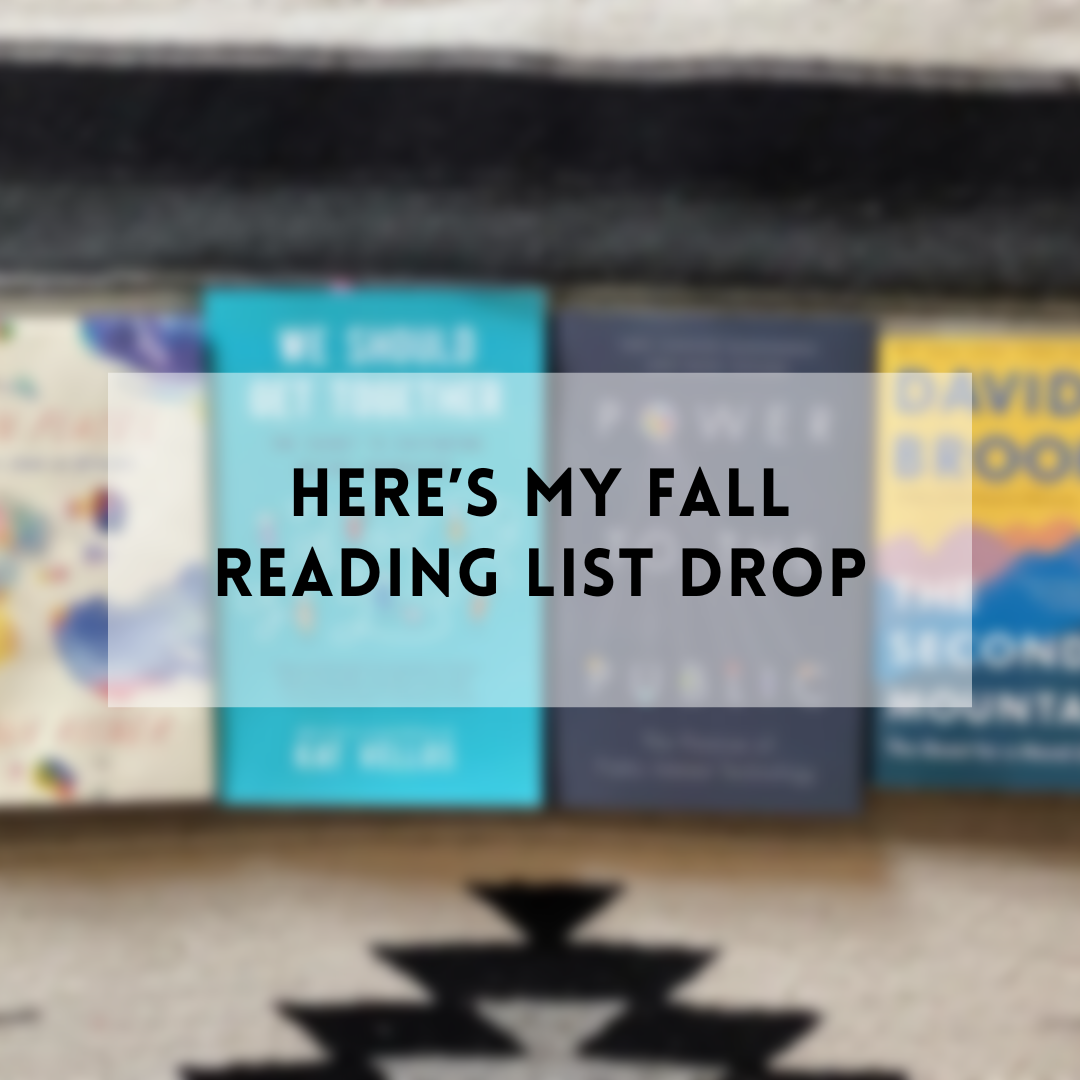Here’s my fall reading list drop
What do adult friendships, languishing and Barack Obama have in common?
My summer reading list, as a matter of fact.
For those of you new to my official unofficial book club, I began sharing for-pleasure reads this spring as a way to connect on topics that range from professional development to grappling with our life’s purpose.
This installment explores themes across community and relationship building, as well as examining present-day problem solving.
1. The Second Mountain by David Brooks
I loved this book for its ability to explore faith and purpose in an honest way. The author walks you through his personal story and posits that a life well-lived is about interdependence.
As Americans, we live in a society that cultivates individualism, but Brooks flips that on its head through his Declaration of Interdependence. This is a manifesto of sorts — leading with these two points:
"A good society is like a dense jungle. There are vines and intertwining branches. There are enmeshed root systems and connections across the canopy. There are monkeys playing at the treetops, and butterflies darting below. Every create has a place in the great ecosystem. There is a gorgeous diversity and beauty and vitality.”
"A good person leading a good life is a creature enmeshed in that jungle. A beautiful life is a planted life, attached but dynamic. A good life is a symbiotic life — serving others wholeheartedly and being served wholeheartedly in return. It is daily acts of loving-kindness, gentleness in reproach, forbearance after insult. It is an adventure of mutual care, building, and exploration. The question is not, Who am I? but, Whose am I?”
— David Brooks
I picked this book up thinking it would be all about finding individual purpose in work, but discovered that it’s just the opposite. It asks us to be more intentionally connected, which is something I think this world could certainly use more of these days.
2. We Should Get Together by Kat Vellos
Has anyone else had a conversation recently about how difficult adult friendships are to maintain/create/grow? This book takes a serious look at how the heck we’re supposed to navigate them and includes practical advice and techniques for cultivating meaningful adult relationships. Turns out, like anything worth doing: it takes work!
Reading this book normalized so many of the feelings I’ve had over the years with regard to relationships. Even better, I walked away feeling empowered to work on the relationships that fuel me, and make peace with the idea that some friendships just aren’t meant to be. Oh, and it’s also filled with really sweet illustrations (you know I love cute illustrations).
3. Power To The Public by Tara Dawson McGuinness and Hana Schank
When Obama recommended this book to me I ordered it ASAP. Okay, maybe it was just a Tweet that he shared with millions of his followers, but I took it to heart. And it did not disappoint!
This book explores how systems built for government and nonprofits either make or break the efficiency and efficacy of the public services rendered. If you’ve ever visited a government website, you know some improvements are called for. And if you’ve ever used a government website and thought “gee, that sure was easy,” please send it my way!
The authors have used case studies to demonstrate where things go wrong, and where they go right. Overall, it’s a plea for us to do better.
4. Thin Places by Jordan Kisner
In the last year in particular, I’ve experienced the sensation of lingering, or floating between past and future. It turns out there’s a term for that and it’s called languishing, which is a fancy way of slaying “feeling bleh” (loved this New York Times article about it).
This book is a collection of essays exploring “in-between” states. It really nails the experience of being alive during such an uncertain time, where we can barely plan more than a day/week/month ahead. Even though the essays don’t address the moment of now, they address the feeling of now. There were many moments when reading this book that I felt a sense of “yes — that!” It was the feeling of being understood, of feeling seen, and it brought such relief. Thank you, Jordan Kisner.
